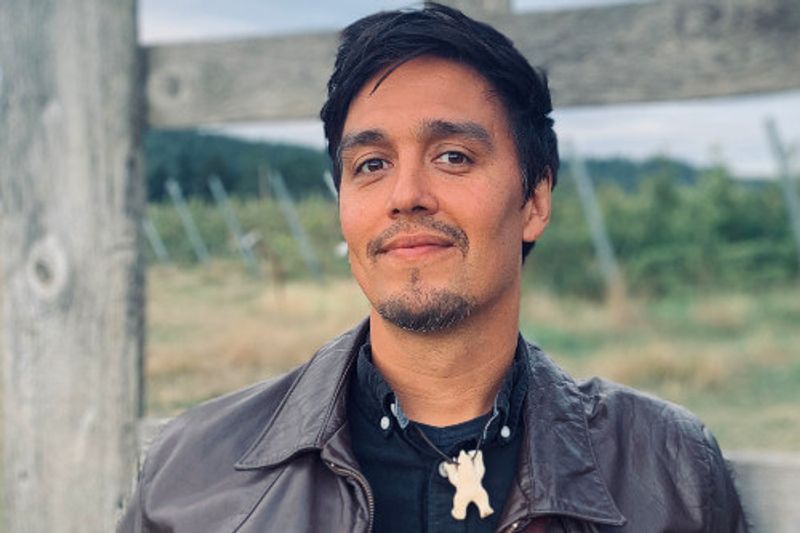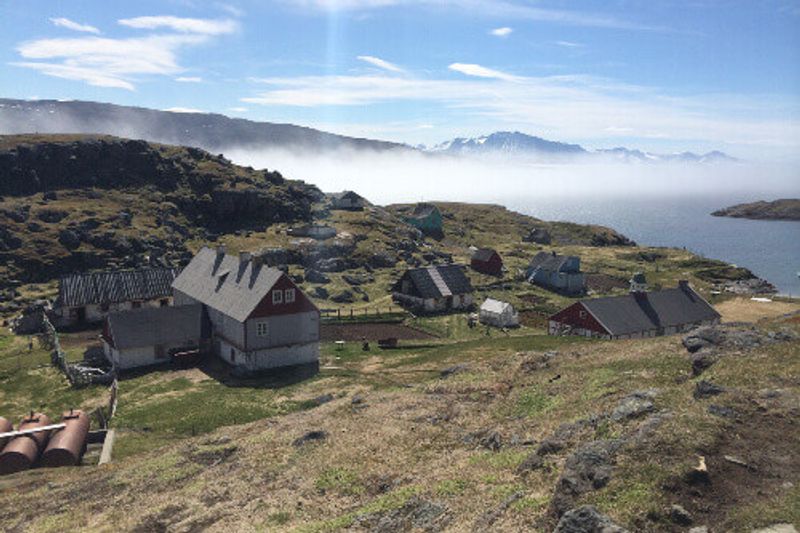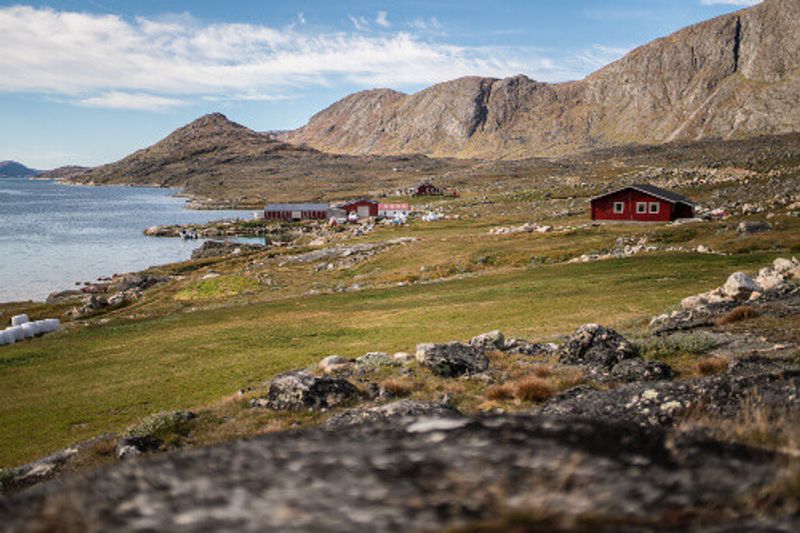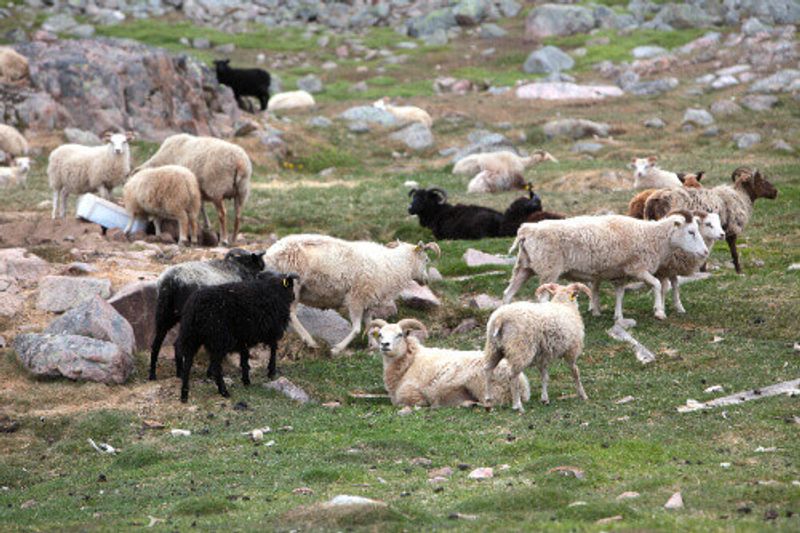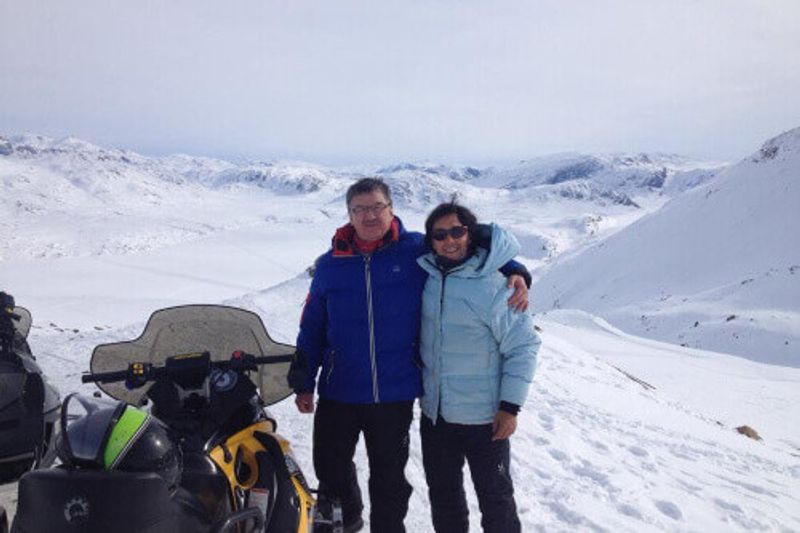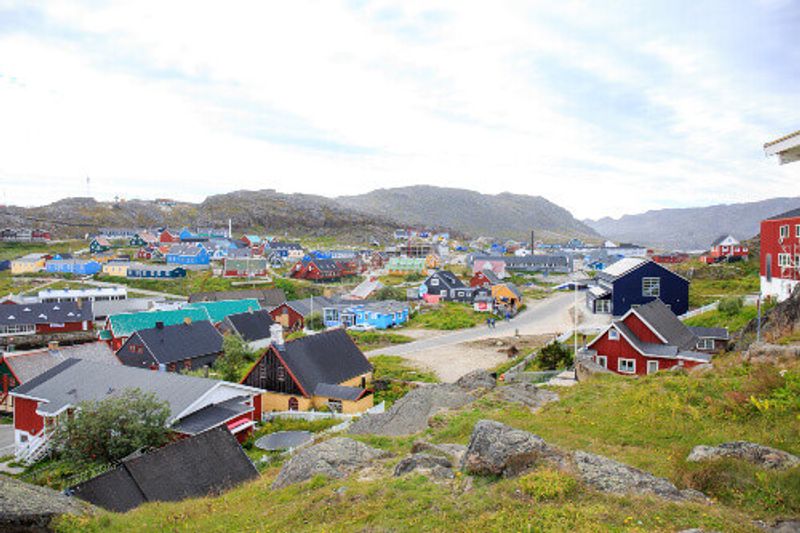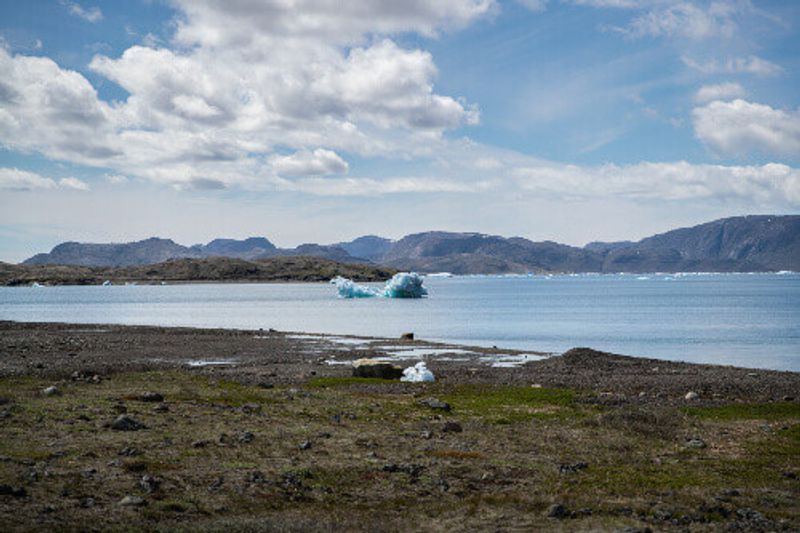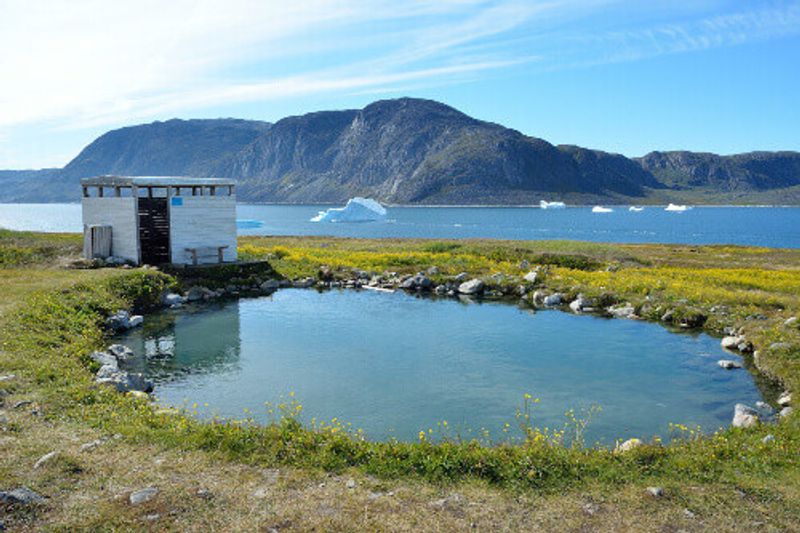Simon Lynge is Greenland’s best known musical export. His folk-rock is heavily inspired by the natural beauty of his childhood home
Where did you grow up?
I am half-Greenlandic and half-Danish, which is quite a common combination since Greenland is a Danish autonomous territory.
I was born in Holstebro in Denmark and lived there until I was five when we moved to Alluitesoq – an extremely small town in southern Greenland way down towards the southern tip. Four generations of my father’s side of the family were born there so it’s a very special place for me. It’s a really beautiful spot and very remote. It was very free, beautiful childhood to me. It was very formative. Even though I haven’t lived my whole life in Greenland, I feel like the years that I spent in Alluitesoq were very formative in that I had unlimited freedom. I didn’t really go to school I just got up in the morning and went and threw rocks in the water down by the beach or helped take care of sheep and things like that. It was a very free lifestyle.
How many people were living in Alluitesoq?
At the time it actually fluctuated as people came and went but between 40 and 70, sometimes as low as 30. There wasn’t always a lot of kids there. My younger brother was a baby when we moved up there so I didn’t have kids to play with so I spent a fair amount of time alone. I would often walk an hour and a half or two, through the mountains by myself to help my cousin who had a sheep farm a little bit further south from where I was.
I say that to people today and they say wow: ‘You were six, seven, eight years old and you walked alone an hour and a half through the mountains,’ but it was just not something we even thought about, it’s just the way it was.
Was it hard to herd sheep in winter?
It’s a year-round thing – the way that sheep farming in Greenland often works is that because there is so much open land, we don’t really bother with fences or anything like that, the sheep are let out in spring and then they just roam free. In the fall, the shepherd will, usually on horseback or sometimes on an ATV, drive out and gather up the sheep. It can take a week or two weeks to do that because they are spread out over a gigantic area. The sheep are just completely free and for me absolutely they make the most delicious lamb because they’re eating all these herbs and berries and stuff that are natural growth, and that makes them very delicious.
Was it strange moving back to Denmark and living in larger communities after being so remote?
It was. It was quite interesting – this freedom that I had gotten used to in Greenland obviously wasn’t present in the same way in Denmark. I remember that being challenging. Because I didn’t go to school in Greenland, when I started school in Denmark, I remember the first day, my mum told me, you have to sit still for five hours and I just couldn’t even… ‘like what? There’s no way I can sit still for five hours, it’s absurd,’ but I did and I got used to it and I finished school in Denmark.
I did end up going back to Greenland when I was 16. I wanted to be close to my dad; I wanted my dad’s presence in my life. I spent a year there, lived by myself and got a job as a delivery boy for a local supermarket and was very independent already.
So when did the love of music start?
My father is a musician and plays the accordion. The accordion is a very popular instrument which I think you can attribute to the whalers from Norway who brought accordions over in the 18th century. At Greenlandic parties, people will play polka on the accordions. There are all these traditional dances we have to polka.
My grandfather is also a musician, he played the organ in church and composed lots of Greenlandic hymns. And my mother, although not a musician is a big music lover so she played her favourite music when I was a kid in the house a lot when she was cleaning up a lot. It was like Paul Simon and Bill Weathers and Bruce Springsteen so that’s when I fell in love with that tradition of songwriting – that kind of American songwriting tradition. So music was a bit part of my life growing up.
And when I moved back to Denmark when I was 17 after spending the year, I had this epiphany, as I got a job when I was 16 and then worked with people mostly much older than myself and I recognised somehow, not sure why, that they were very often pretty unhappy with what they were doing. It wasn’t a joyful thing to come to work every day for them and it was very eye-opening for me. I realised I didn’t want to live like that and that’s kind of how music because of the focus for me.
I thought, if I can somehow make music work for me then I will have a lot more autonomy than if I am tied to a 9-to-5 job and I think that’s true. Although being a musician and an artist is challenging because I have to create everything myself.
How would you describe your music?
My basic feeling is that human beings are suffering at an unprecedented level all over the world right now, because we have created this culture that is not conducive for humans to thrive. We have a completely profit-orientated culture and it’s not in balance with human nature. I try to remind people of their humanity and I like to call my music an audio-hug.
I like to give people some comfort and also some space for that darkness to show up. Because I think all this grief that humanity has over our loss of connection to each other and to nature is a big reason why we are so destructive to the earth. It’s because we have a lot of unexpressed grief in our bodies. So I try in my music to give space for that grief to surface. It’s very often that people cry during my shows. It’s weird and sometimes I cry too. I try to be ok with that. It’s totally natural; people need it.
The influence of your background in Greenland must have been strong
Yes, that’s fair to say. Speaking strictly harmonically, I think it doesn’t really significantly differ from western music because of the musical influences I had from a young age but I think as far as the thematic content of the songs. Very early I felt connected to nature and the world around me and I remember very specifically when I was 16 in Greenland I was walking around a lake in Qaqortoq and I took a break and sat down and I was looking at these mountains across the lake and I remember having this sort of epiphany – I realised those mountains were me. ‘Oh wow, this is all me, and all of this is my extended body. And this is before I had any exposure to new age thinking and all those things that are so pervasive now. So that experience has been very instrumental in how I express myself lyrically in my songs. Because I think human beings have largely become really disconnected from the planet that we live on and that’s why we are capable of destroying it the way that we are.
Which is incredibly visible right now especially in Greenland
It’s very, very frightening. It’s terrifying to me actually. A great example was about 8 years ago, my cousin in Qaqortoq posted a picture on Facebook of an Easter lily blooming on January 1st where there would usually at that time of year there would be 6 feet of snow.
In Greenland, for centuries and possibly millennia, we have been dependant on predictability because we are hunters, and animal behaviour is dictated by the weather so depending on when the snow comes and when the ice recedes, animals show up in certain places. We would know where to go at what time of year to catch certain animals that sustain us. And since the weather patterns are now changing so much, the animals are also changing their behaviour. We don’t know where the animals are going to be. For example, all the mosquitos will come out in May and they used to come out in July and August because it's warmer. So all these things are shifting and it's making our traditional way of life very difficult to maintain.
I went to Greenland with some journalists a number of years ago and it was in June and usually we have pack ice – on the east coast of Greenland there are all these huge glaciers that produce massive amounts of icebergs and they travel around the tip of Greenland and then into the fjords and they fill them up so you can’t sail in a boat in the summer. And it usually lasts until mid-August and they’ll be melted by then and they get stuck in the fjords but we were there in June and there wasn’t a single iceberg – they were all completely melted already because the water is warmer and the temperatures are just higher. And that was 7 years ago and it hasn’t gotten any better.
What are your favourite places in Greenland?
I am a south Greenlander. Kukataa means south and southern Greenland to me is really magical. It’s very green and unspoilt. There is a hot spring called Uunartoq – a natural hot spring where hot water bubbles up from underground and it’s a clearly magical space. You can sit in the water and look at icebergs – it’s like bathwater all year round.
A little bit further north Ilulissat, which has a UNESCO World Heritage Site. The ice fjord there is a massive glacier that produces unbelievably gigantic icebergs. There is a hotel there called the Hotel Arctic where I have been a few times. It’s an amazing hotel and the food is amazing and every room has a view of the ice fjords, so you can sit in your room and look at these gigantic icebergs whilst your sipping prosecco. It’s an absolutely incredible place.
Simon's album, Deep Snow, is out now. Visit Simon's website here.
